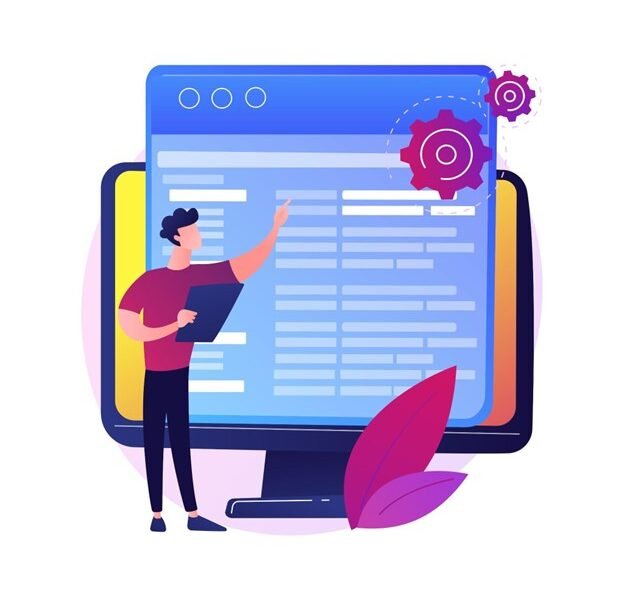In an era defined by rapid technological advancements and ever-changing market dynamics, the ability to adapt and innovate has become essential for business success. Enterprise Low-Code Application Platforms (LCAPs) are at the forefront of driving business agility, enabling organizations to respond swiftly to evolving challenges and opportunities.
As we look towards the future, several emerging trends are shaping the landscape of LCAPs, offering new possibilities for enhancing business agility and driving sustainable growth.
Trend 1: AI and Machine Learning Integration
One of the most significant trends in Enterprise Low-Code Application Platforms is the integration of artificial intelligence (AI) and machine learning (ML) capabilities.
By harnessing the power of AI and ML, LCAPs can automate repetitive tasks, streamline decision-making processes, and unlock new insights from data. For example, AI-driven predictive analytics can help businesses anticipate market trends, optimize resource allocation, and identify opportunities for innovation.
As AI and ML technologies continue to mature, we can expect to see deeper integration within LCAPs, enabling organizations to develop more intelligent and adaptive applications.
Trend 2: Enhanced Collaboration and Governance Features
Another key trend in the evolution of LCAPs is the focus on enhancing collaboration and governance features. In today’s increasingly interconnected business environment, effective collaboration between IT and business stakeholders is essential for driving innovation and ensuring alignment with strategic objectives.
Modern LCAPs are incorporating features that facilitate seamless collaboration, such as real-time collaboration tools, role-based access controls, and version control mechanisms. Additionally, there is a growing emphasis on governance and compliance features to ensure that applications developed on LCAPs meet regulatory standards and organizational policies.
By prioritizing collaboration and governance, LCAPs empower organizations to develop and deploy applications with confidence, while mitigating risks and ensuring accountability.
Trend 3: Cloud-Native Architecture and Microservices Adoption
As organizations continue to embrace cloud computing and microservices architecture, Enterprise Low-Code Application Platforms are evolving to support these trends. Cloud-native LCAPs offer greater scalability, flexibility, and agility, enabling organizations to leverage the scalability and resilience of cloud infrastructure.
Additionally, LCAPs that embrace microservices architecture allow for greater modularity and reusability, facilitating faster development cycles and easier maintenance.
By adopting cloud-native architectures and microservices, organizations can accelerate their digital transformation journey and unlock new opportunities for innovation and growth.
Trend 4: Specialization and Industry-Specific Solutions
As the adoption of Enterprise Low-Code Application Platforms continues to grow, we are witnessing a trend towards specialization and industry-specific solutions.
LCAP vendors are increasingly focusing on developing solutions tailored to the unique needs of different industries, such as healthcare, finance, manufacturing, and retail. These industry-specific LCAPs offer pre-built templates, workflows, and integrations designed to address the specific challenges and regulatory requirements of each sector.
By providing specialized solutions, LCAP vendors empower organizations to accelerate their digital transformation initiatives and drive innovation in their respective industries.
Conclusion and Recommendation
The future of business agility lies in the continued evolution of Enterprise Low-Code Application Platforms, driven by emerging trends that promise to reshape the way organizations develop and deploy applications.
From AI and machine learning integration to enhanced collaboration and governance features, cloud-native architecture, and industry-specific solutions, LCAPs are poised to unlock new possibilities for driving innovation and staying ahead of the competition. As businesses navigate this dynamic landscape, embracing an LCAP that embraces these emerging trends is essential for unlocking the full potential of low-code development.
In the realm of Enterprise Low-Code Application Platforms, ServiceNow stands out as a leader in innovation and excellence. With its cutting-edge platform, ServiceNow empowers organizations to embrace emerging trends in low-code development and drive business agility with confidence.
From AI-driven automation to enhanced collaboration and governance features, ServiceNow offers a comprehensive solution to meet the evolving needs of modern enterprises. Embrace the future of business agility with ServiceNow and unlock new possibilities for innovation and growth.
As a dedicated Premier ServiceNow Partner, Devhd assists organizations in maximizing the platform’s potential for their transformative journeys. Devhd’s partnership with ServiceNow focuses on delivering transformative solutions rather than merely offering services.
Embracing low-code development with Devhd enables organizations to unlock new possibilities for success.
